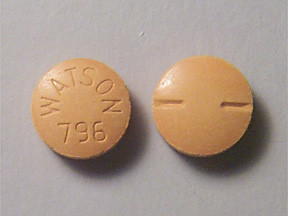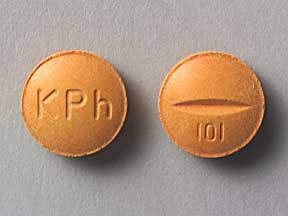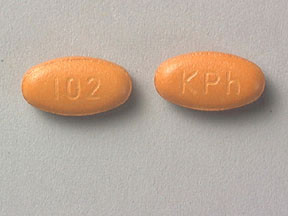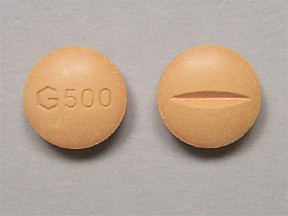SULFASALAZINE - ORAL
PHONETIC PRONUNCIATION: (sull-fuh-SAL-uh-zeen)
COMMON BRAND NAME(S): Azulfidine
GENERIC NAME(S): sulfasalazine
Uses
USES: Sulfasalazine is used to treat a certain type of bowel disease called ulcerative colitis. This medication does not cure this condition, but it helps decrease symptoms such as fever, stomach pain, diarrhea, and rectal bleeding. After an attack is treated, sulfasalazine is also used to increase the amount of time between attacks. This medication works by reducing irritation and swelling in the large intestines. In addition, delayed-release tablets of sulfasalazine are used to treat rheumatoid arthritis. Sulfasalazine helps to reduce joint pain, swelling, and stiffness. Early treatment of rheumatoid arthritis with sulfasalazine helps to reduce/prevent further joint damage so you can do more of your normal daily activities. This medication is used with other drugs, rest, and physical therapy in patients who have not responded to other medications (salicylates, nonsteroidal anti-inflammatory drugs-NSAIDs).
How to use SULFASALAZINE - ORAL
HOW TO USE: Take this medication by mouth after meals with a full glass of water (8 ounces or 240 milliliters) or as directed by your doctor. To prevent stomach upset, your doctor may recommend a slow increase in your dosage when starting treatment. Dosage is based on your medical condition and response to therapy. In children, dosage is also based on weight. If you are taking the delayed-release tablets, swallow them whole. Do not crush, chew, or break the tablets. Doing so may increase the chance of stomach upset. Drink plenty of fluids during treatment with this medication unless otherwise directed by your doctor. This will help prevent kidney stones. Take this medication regularly to get the most benefit from it. To help you remember, take it at the same times each day. Inform your doctor if your condition does not improve or if it worsens. For the treatment of rheumatoid arthritis, it may take 1-3 months before you notice any improvement in your symptoms.
Side Effects
Precautions
Interactions
Overdose
Images

- color
- mustard
- shape
- round
- imprint
- WATSON 796

- color
- mustard
- shape
- round
- imprint
- WATSON 796

- color
- mustard
- shape
- round
- imprint
- WATSON 796
Reviews
Faq for SULFASALAZINE - ORAL
Sulfasalazine is an oral medication primarily prescribed to treat inflammatory bowel disease, such as ulcerative colitis and Crohn's disease.
Sulfasalazine works by decreasing inflammation in the bowel and reducing the symptoms of inflammatory bowel disease. It targets and suppresses the body's immune system response, which can cause inflammation.
Common side effects of Sulfasalazine may include nausea, vomiting, diarrhea, headache, loss of appetite, and rash. Some individuals may also experience yellowing of the skin or eyes, fever, sore throat, or unusual bleeding or bruising. Consult a healthcare professional if any severe side effects occur.
Sulfasalazine should only be taken during pregnancy if the potential benefits outweigh the risks. It is important to discuss with a healthcare professional before using this medication while pregnant.
Sulfasalazine can interact with certain medications, including blood thinners, certain antibiotics, and certain anti-inflammatory drugs. Inform your healthcare provider about all the medications, supplements, and herbal products you are taking before starting Sulfasalazine.
The effects of Sulfasalazine can vary from person to person. Some individuals may start experiencing relief from symptoms within a few days of starting the medication, while others may take several weeks to notice improvement. It is important to follow the prescribed dosage and be patient with the treatment.
Yes, Sulfasalazine can cause allergic reactions in some individuals. Symptoms of an allergic reaction may include rash, itching, swelling, severe dizziness, and trouble breathing. Seek immediate medical attention if any allergic reactions occur.
Yes, Sulfasalazine can also be prescribed for the treatment of rheumatoid arthritis. It helps reduce inflammation and joint pain associated with the condition.
Sulfasalazine can be used in children for certain indications, such as inflammatory bowel disease or juvenile rheumatoid arthritis. The dosage and duration of treatment should be determined by a healthcare professional based on the child's age, weight, and condition.
Disclaimer
IMPORTANT: HOW TO USE THIS INFORMATION: This is a summary and does NOT have all possible information about this product. This information does not assure that this product is safe, effective, or appropriate for you. This information is not individual medical advice and does not substitute for the advice of your health care professional. Always ask your health care professional for complete information about this product and your specific health needs.



No Reviews Yet